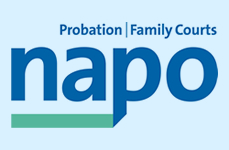Napo, Unison and GMB are extremely concerned that the government is giving serious thought to re-privatising the supervision of unpaid work (UPW).
Without the benefit of any written briefing on these proposals, we understand from a meeting with officials and the Prisons and Probation Minister that one of the options that Ministers are considering, as part of their strategy to underpin the delivery of the Sentencing Bill, is putting individuals or groups subject to unpaid work orders at the disposal of private companies.
This proposal reminds all too clearly of the sequence of events which unfolded in 2012, when the Conservative Government’s privatisation of the supervision of UPW in London heralded in the disaster which was to be Transforming Rehabilitation.
In February 2014, the three unions, with the guidance of the TUC, made a representation under article 24 of the Constitution of the International Labour Organization (ILO), asserting that the privatisation of UPW supervision amounted to non-observance by the United Kingdom of the Forced Labour Convention, 1930 (No. 29). Convention No. 29 was ratified in 1931 by the United Kingdom and remains in force.
You can read the ILO Committee’s conclusions in relation to our original 2014 representation here: GB.325/INS/15/8; numbered paragraphs 46 – 51 refer. The ILO Committee’s recommendations can also be found here at paragraph 52.
Subsequently, in August 2019, again under the auspices of the TUC, the unions made a supplementary follow up representation to the ILO in 2018 to seek to re-open our original case on the basis that the UK Government had failed to adequately address the original recommendations of the ILO Committee as referred to above. In particular we drew attention to the fact that:
- The Secretary of State for Justice had failed to exercise adequate ‘...control and supervision...’ of the delivery of unpaid work by the private Community Rehabilitation Companies, as required by the Committee of Experts
- The private sector Community Rehabilitation Companies (CRCs), responsible for UPW supervision, had prioritised fee-paying unpaid work projects over those that are unable to pay, thereby casting doubt on the Committee of Experts acceptance that ‘...the providers are not the beneficiaries of the product of the work carried out by offenders...’
-
The CRCs had placed unpaid work labour at the disposal of third-party private sector organisations which subsequently enjoyed private benefits from the provision of this unpaid work labour.
Our follow up representation also made detailed challenge to the claims which the UK Government had made to the ILO in response to our original representation.
The ILO Committee response to the unions’ supplementary representation, published in 2021, can be found here: https://www.ilo.org/dyn/normlex/en/f?p=1000:13100:0::NO:13100:P13100_COMMENT_ID:4059789
Here is the key extract from the ILO statement:
‘The Committee welcomes the Government’s statement to the House of Commons to the effect that from June 2021 private entities will no longer be in charge of placing sentenced offenders with providers to perform community work, allowing for better compliance with Article 2(2)(c) of the Convention. The Committee requests the Government to provide information on the effective implementation of this measure and to continue to provide information on the nature of the entities that benefit from unpaid work, as well as on the type of general interest work undertaken.’
It was significant that the ILO welcomed the proposed return of UPW supervision to the public sector, in order, as it observed, to allow for better compliance with the Forced Labour Convention. It also made a request that, going forward, the UK provide information to the ILO in respect of the delivery of this strand of the Probation Programme and the nature of entities that benefit from UPW. The unions are not privy to whether the UK government has subsequently made any such information available to the ILO.
In summary, the representations which the unions made to the ILO in 2014 and 2019 respectively were successful.
From a wider trade union perspective, and putting the ILO issues to one side, the prospect of UPW being supervised by the private sector will, we anticipate, trigger significant concern and opposition from those unions which organise in this sector. The threats that private sector supervision of UPW would pose around job substitution, and rates of pay for the job, are very likely to raise a negative response from sister unions, as will the challenges that such delivery would pose around health and safety and collective bargaining.
Closer to home, we are also concerned that any proposals to involve the private sector in the supervision/provision of UPW may also partly be in response to the current inability of HMPPS to adequately fund/resource UPW provision in many parts of England and Wales.
It is with the above contested history in mind that the unions have asked the Lord Chancellor that the Government draw back from any proposals which are currently under consideration to place individuals on UPW orders at the disposal of private companies.
At the time of writing the unions have yet to receive a reply to the letter on the subject which we wrote to the Lord Chancellor on 3 July 2025 asking her to call off the plans to privatise UPW supervision.
